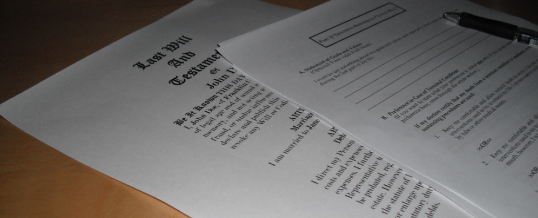The words “Last Will and Testament” may sound soap opera-ish to the ears, but such documents are real and could be filed by someone dear to you. To define, a will is a legal document that someone leaves in which he clearly states the bequeathal of his properties and possessions to his beneficiaries (whether individuals or charitable institutions) upon the time of his death.

Just in case you want to find the will of a deceased person, try locating the probate court and searching the files. In some areas, you may need to pay for a fee before the clerk releases a furnished copy for you.
Know the Will Basics
A last will and testament varies from being simple to being comprehensive and detailed. The individual who makes the will is called the testator and as long as he is alive, he can change, update or revoke his will for another testament. The document is very private and could only be seen if the testator wants to show it to someone else.
Filing the Will
When the testator dies, the last will he gave is automatically deemed irrevocable. As for the part of the beneficiary or beneficiaries, the assets stated within the will could not automatically be passed to him or her. There will be a due process in which someone must file the will with the probate court as the first step. From there, the court supervises the process wherein the testator’s taxes and debts will be deducted. Only after then will the assets be finally distributed.
Finding the Will(s)
First, you need to locate the testator’s residence before his death. Find the contact info of the probate court and make a call before making any plans of going there. Should the clerk confirm the existence of the will, he could provide your with the case number and you can then show up during office hours for your copy.
Acquiring Court Assistance
In some cases (most especially in urban areas), the probate court would ask you for some fees. You can check these fees online and the directions of how to access them. Alternatively, you mail an order form requesting for the particular will or order a copy of the will via the court’s official website.
